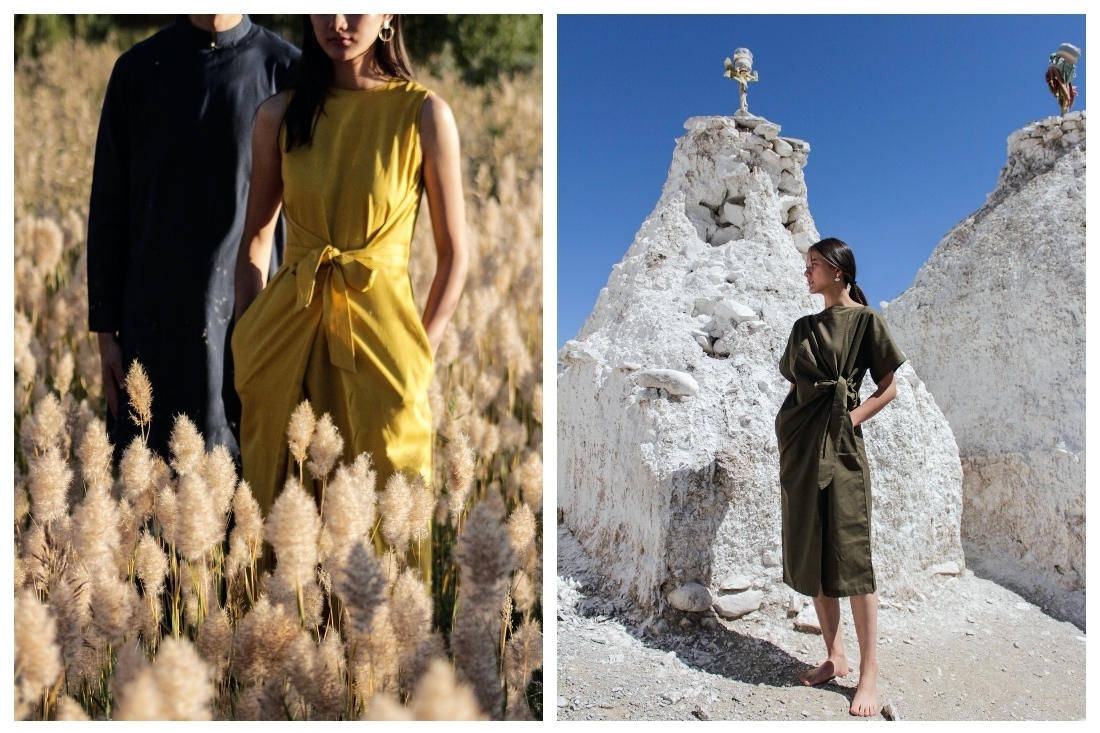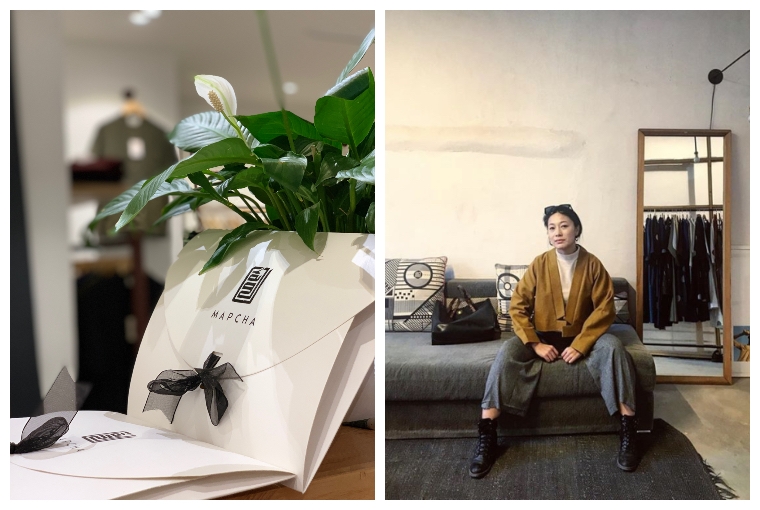

Founded by Lhanzey Palden in 2018, Mapcha is a lifestyle brand inspired by Himalayan art and culture. The unique name, is a Tibetan translation of ‘peacock’. Lhanzey’s brainchild was created out of a desire to place traditional Himalayan arts and aesthetics within the contemporary space. Such reinterpretation is undertaken in the belief that these constitute living rather than stagnant traditions, which can accommodate changing times and the needs of new generations. We got in touch with the founder for deeper insight into the label. Excerpts follow:
When did your journey with design begin and what led you to create Mapcha?
I have always been a visual person and I enjoy the act of creation. As a professional, my design journey began as an interior designer where I amalgamated vernacular architectural elements from the Himalayan region into the contemporary space. I share the same concept for Mapcha - taking inspiration from the traditional elements from my rich cultural heritage and turning it into something modern. The concept has been with me since I was in high school, hence the brand launch is a dream that actualised sooner than I had anticipated.

What motivated the Losar edit?
Losar or the Tibetan New Year, is the most important occasion that is celebrated with a lot of zest in the community. Family and friends get together, dressed in their traditional best, with great Tibetan food, a lot of music and dance. This is what Losar is all about. So I knew that I had to do something special for Losar this year and that's why I launched my first design of the signature jewelry for Mapcha as ‘The Losar Edit’. The earrings Trin-kar (white clouds) and Trin-ser (gold clouds) are inspired by the cloud patterns of the religious Tibetan Thangka paintings.
There's also this sense of androgyny that is reflected in the clothing. As a designer is that something intentional? Is that an aspect that also comes from the Himalayan communities?
The clothing line Upalla for Mapcha, which is retailed only at our studio, is designed by Pema Khando. Our vision and aesthetics align, that's why her designs were the perfect fit for Mapcha. When it comes to Tibetan traditional attire, the designs and cuts are mostly gender neutral in style, unlike Indian attires where there's a clear distinction. The intention behind the design line is focused more on getting inspired from the traditional and transforming it, on the basis of practicality, comfort and versatility.
How has your creative process evolved since you started the label?
I started Mapcha as a full-fledged lifestyle store with a jewellery line, clothing label, home decor and accessories. It wasn’t easy starting everything together, a lot of learning and unlearning has happened along the path I took, which has definitely evolved as Mapcha grew. As the creative head, Mapcha has been a form of expression for me, an extension to my personality and also a means of self-exploration. I’ve understood myself better and I want to now focus on certain aspects of the creative process that I’ve really enjoyed along the way.
While your aim is the representation of the traditional Himalayan spirit, isn't there also a possibility for appropriation? How do you deal with that aspect?
Being a Ladakhi-Tibetan, I don't see it as cultural appropriation. My aim is to represent the cultures I grew up embracing and Mapcha is a celebration of them. Placing Himalayan visual culture in the contemporary space through my design sense is to accommodate the changing times and needs of new generations. I get inspired and I innovate, being mindful of where to draw the line.
Finally, what are some other projects we can look forward to from Mapcha?
At the moment, we only have our clothing line and a bit of the jewellery on the website. I’ve been working on getting the rest online which is home decor and the accessories. I’ve also been working on new designs, expanding the existing collections but my summer jewellery collection is what I am excited about the most that you can also look forward to.
Text Unnati Saini